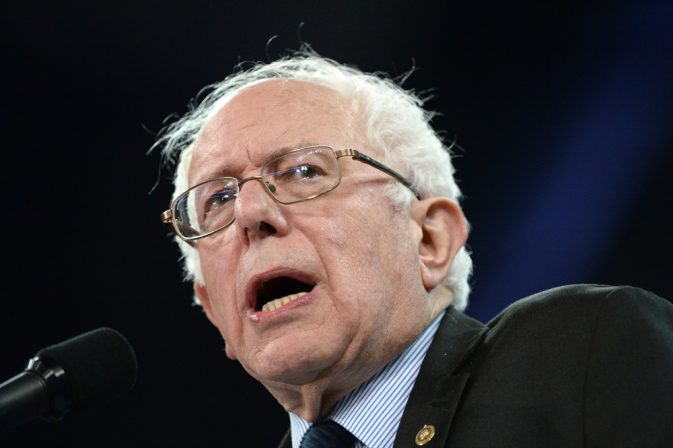Sanders’ Support Buoyed by Lack of Medicare for All Detail

Senator Bernie Sanders won plaudits from the mainstream media for his town hall appearance on Fox News last week. “Sanders takes on Fox — and emerges triumphant,” said Politico. “Bernie Sanders entered the Fox’s den on Monday night — and he not only survived the hour-long encounter, but often dominated.”
With nearly a half-century of election and public office experience, Sanders knows how to work a crowd. The key to success: speak in generalities. Exhibit A was his description of Medicare for All, his signature policy idea and campaign promise. Knowing it’s where the devil lives, he avoided going into detail about the implementation, funding, or operation of his plan. Without a thorough examination of its consequences, Medicare for All will continue to enjoy artificially high support among the voting public.
Sanders begins his Medicare for All argument from a premise with which everyone agrees: that all Americans should have access to health insurance. It’s just that despite the mountain of evidence to the contrary, Sanders believes that the government is the best vehicle to achieve this shared goal.
Sanders needs to explain what makes him think the government can effectively run American healthcare, which represents nearly one-fifth of the economy, when it can’t even manage to effectively run the DMV, post office, or the parts of healthcare it already controls such as Medicaid, Veteran’s Health, and Obamacare.
There is no great national crisis with access to and affordability of auto insurance. That’s because it’s a free-market system. Given the success of auto insurance and the disaster of the VA, wouldn’t it make more sense to reform healthcare around free-market principles rather than doubling down on failed government intervention?
Sanders argues that Medicare for All can be funded through tax increases that would be smaller than what average Americans currently spend on healthcare premiums, co-payments, and deductibles. But state and federal cost estimates of Medicare for All, including in Sanders’ home state of Vermont, find that tax rates would have to at least double to fund it. Such sticker shock has killed state Medicare for All proposals in progressive states on both coasts.
If Medicare for All can’t work in Vermont, whose population is small, homogenous, and liberal, what makes Sanders think it can work nationally? Show Americans a ten-year track record of Medicare for All success at the state level before you try to shove it down the nation’s throat.
The only way to achieve Sanders’ cost-saving promise is to ration care. While Sanders glowingly points to other countries’ socialized healthcare systems, he fails to point out that rationing is the other side of the coin in each one.
For instance, more than one million Canadians — the equivalent of more than 10 million Americans — are currently stuck on healthcare waiting lists due to that country’s single-payer system. Current wait time for treatment: about five months. Imagine waiting that long to start chemo. More than 60,000 Canadian patients flee abroad each year to escape their healthcare line to receive the care they need. These are the consequences with which every American flirting with supporting Medicare for All must be confronted.
When Sanders is pressed on Medicare for All, he falls back on a critique of the status quo, which is impoverishing countless American families and forcing tens of millions of Americans to go without care. But this is a strawman argument, because no one is defending the current system. Just why is the kneejerk reaction to fix it involve more government intervention when that approach fails every time?
When Sanders is finally forced to answer these tough questions, his reception — and the perception of Medicare for All — will not be so glowing.





